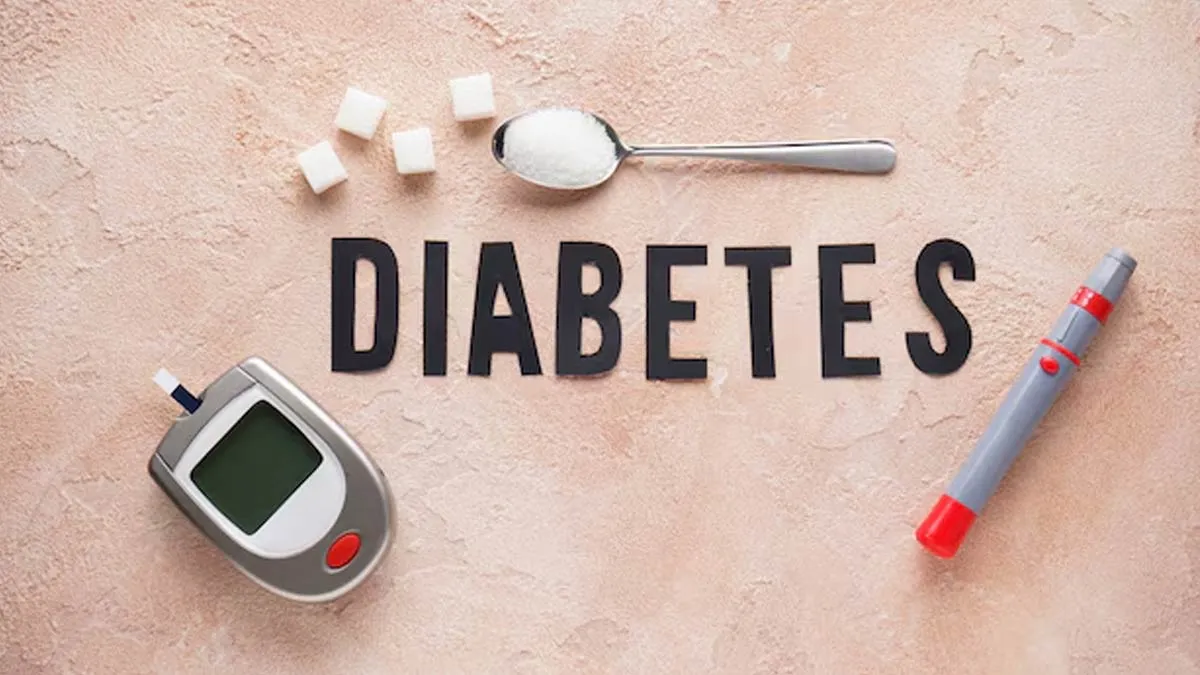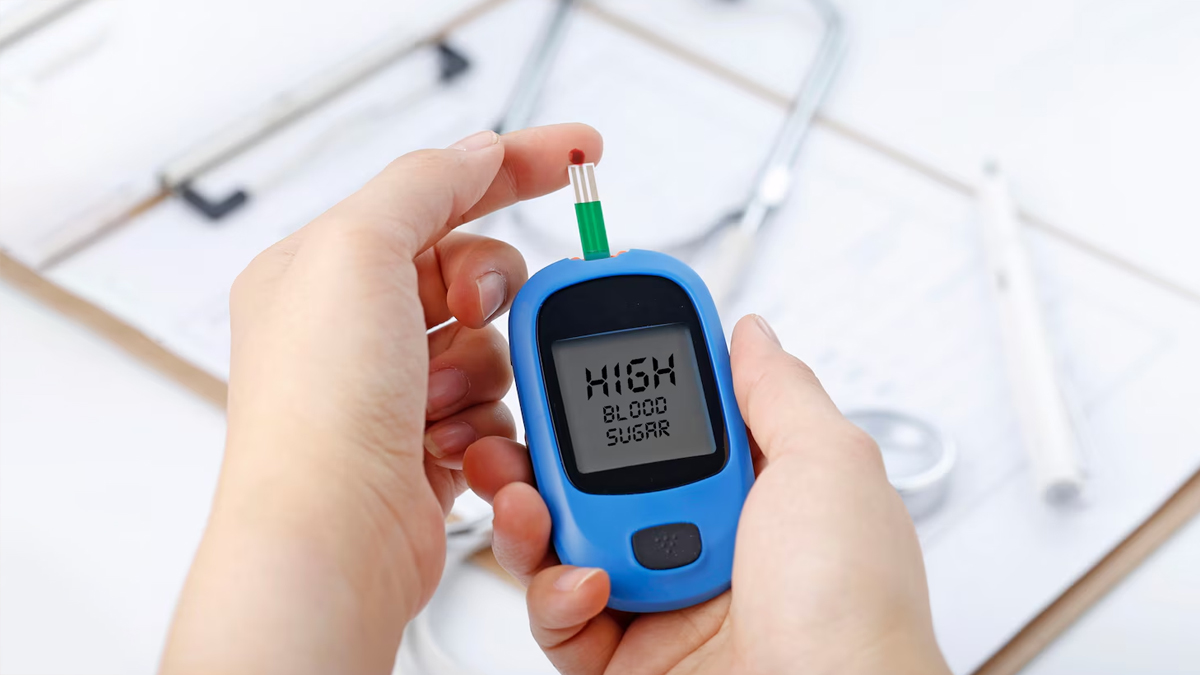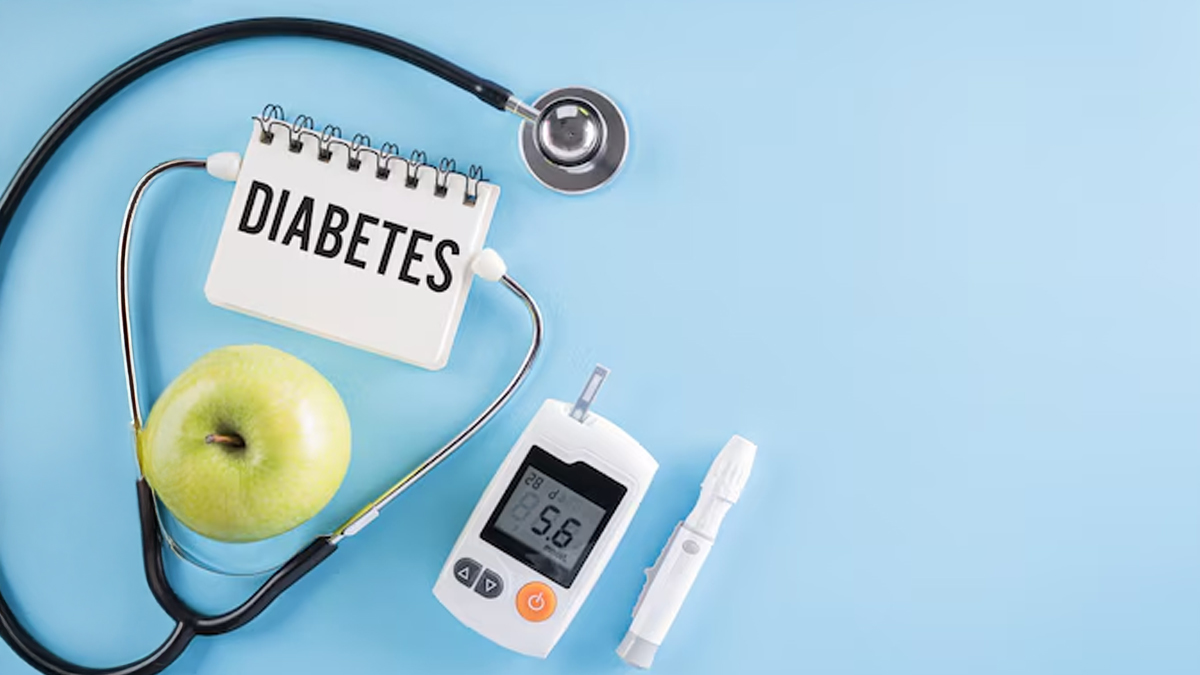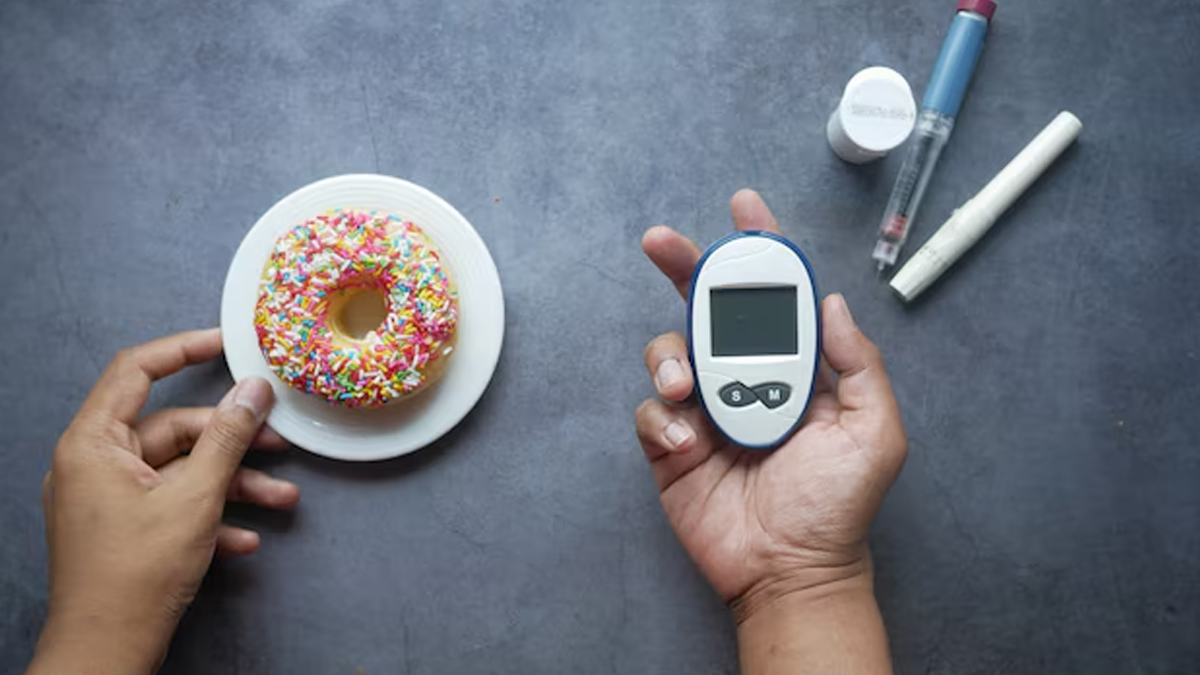
Anyone can develop diabetes, especially after the age of 45. While age is a significant risk factor, younger people are not immune; other factors like obesity, sedentary lifestyle, or a family history of diabetes can increase their risk as well. Speaking with the OnlyMyHealth team, Dr Anil Menon, HOD of Endocrinology, DPU Super Speciality Hospital, Pimpri, Pune, dived deep into these risk factors, emphasising the need to take early action.
Table of Content:-
Also Read: From Diabetes To Nerve Damage, Causes Of Burning Sensation In Feet
Who Is At Risk Of Developing Diabetes?

Diabetes can occur in two main types: type 1 and type 2 diabetes. Type 1 diabetes occurs when the body's immune system attacks and destroys insulin-producing cells in the pancreas, leading to a complete lack of insulin. This is typically diagnosed in childhood or young adulthood. Type 2 diabetes, on the other hand, occurs when the body either doesn't produce enough insulin or the cells become resistant to its effects, meaning the insulin produced doesn't work as effectively.
According to the US Centers for Disease Control and Prevention (CDC), there isn't a known way to prevent type 1 diabetes; however, the common risk factors include:
- Family history: Having a parent, brother, or sister with type 1 diabetes.
- Age: You can get type 1 diabetes at any age, but it usually develops in children, teens, or young adults.
When it comes to type 2 diabetes, you may be at risk if you:
- Are overweight or have obesity.
- Are age 45 or older.
- Have a parent or sibling with type 2 diabetes.
- Are physically active less than three times a week.
- Have Non-Alcoholic Fatty Liver Disease (NAFLD).
Dr Menon adds that women with Polycystic Ovarian Disease (PCOD), gestational diabetes (diabetes during pregnancy), or those who have delivered a baby weighing more than 3.5 kg are also at elevated risk.
When Should You Start Getting Screened For Type 2 Diabetes?

In India, where diabetes is becoming increasingly common, early screening is crucial. The Indian Council of Medical Research recommends that all individuals above the age of 30 get screened, shares Dr Menon, adding that in some high-risk individuals, even screening from age 25 may be appropriate. This is especially important if you have multiple risk factors or a family history of diabetes.
“The Madras Diabetes Research Foundation has developed the Indian Diabetes Risk Score (IDRS), a simple tool that uses four key parameters: age, physical activity, waist circumference, and family history of diabetes. Each parameter is assigned a score, and the total score helps classify individuals into low, moderate, or high risk of developing diabetes. This allows anyone to assess their risk level easily by calculating their IDRS,” he adds.
Also Read: Can Eating Beans Benefit People With Prediabetes?
Genes Vs. Lifestyle: What Matters More?
Both genes and lifestyle play a critical role. “Genetic predisposition involves multiple genes that either reduce insulin action or impair insulin production,” Dr Menon says. But lifestyle factors, such as a sedentary routine, lack of exercise, and poor diet, are equally influential. These lifestyle habits can increase insulin resistance and accelerate the onset of diabetes, even in people without a strong genetic predisposition.
What Should You Do If You're At High Risk?

If you fall into the high-risk category, don’t panic, but do take action. Dr Menon recommends focusing on:
- Maintaining a balanced diet
- Exercising regularly
- Achieving and maintaining a healthy weight
“In some cases, individuals with prediabetes, slightly elevated blood sugar that isn’t high enough for a diabetes diagnosis, may benefit from medications like Metformin to delay or prevent the disease,” he adds.
Conclusion
Understanding your risk is the first step toward prevention. Whether it’s through early screening, calculating your risk score, or making simple changes in diet and exercise, diabetes doesn’t have to be inevitable. Remember, a proactive approach to lifestyle and screening can make all the difference.
Also watch this video
How we keep this article up to date:
We work with experts and keep a close eye on the latest in health and wellness. Whenever there is a new research or helpful information, we update our articles with accurate and useful advice.
Current Version